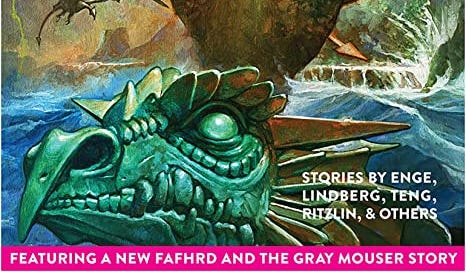Fafhrd and the Gray Mouser: Pawn's Gambit
The Twain return in an unwilling contest of heroic deeds...
Renowned sword and sorcery heroes Fafhrd and the Gray Mouser return yet again in another authorized tale from Fritz Leiber’s estate and veteran writer Nathan Long. Still in hiding from a failed heist, the duo of a civilization-infatuated barbarian and a magically inclined thief cannot rest. For their wizard patrons have decided to settle a matter of pride with their unwitting pawns. Whichever servant of the wizards has the most heroic deeds (in number and magnitude) has the mightier patron. So Ninguable of the Seven Eyes and Sheelba of the Eyeless Face steal towards the dreams of Fafhrd and the Gray Mouser…
…and lie, lie, lie, lie…
The Twain split up. Fafhrd, in fear of his eternal respite, tackles gross corruption preying on the weak. The Gray Mouser, seeking to depower a shadowy nemesis with good deeds, rescues a sacrificial maiden. But heroism in a fallen world is complex at best, and the Twain soon learn that most people enjoy the status quo. And then the Twain discerns the wizardly hand guiding their fates…
“Pawns’ Gambit” is lighthearted sword and sorcery, lacking even a trace of the Twain’s earliest Gothic origins. While irony and subversion abound, the basic idea of heroism is not ridiculed, just rendered complex. And perhaps the selfish motivations of the wizards and the Twain undermined real heroism. That said, the heavy irony of saving an unwilling sacrifice so she could willingly sacrifice herself to another cult feels like it should be found in a Warhammer tale of Gotrek and Felix instead—tales which Nathan Long has authored previously. Fortunately, neither of the Twain are portrayed as dour as the Slayer and his recorder.
If you enjoyed the latter tales of the Twain, post-Unknown and the injection of humor into fantasy, “Pawn’s Gambit” fits in with a jocular, almost locker room, way of conflict. Boys will be boys, after all, and not all heroic deeds are feats of strength. But for those looking for something tinged with the Twain’s more serious and Gothic origins, perhaps the earlier “Guilty Creatures” make be more your speed.




